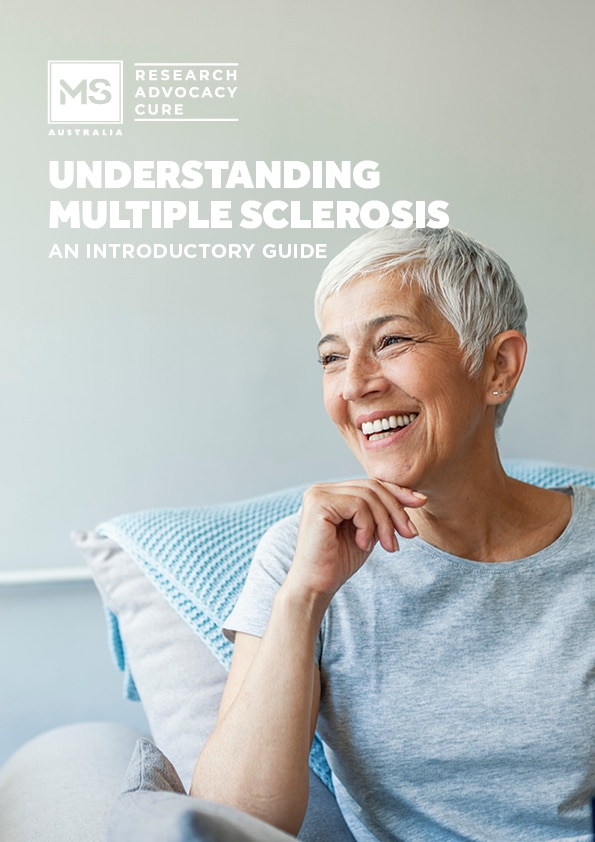MS is the most common acquired chronic neurological disease affecting young adults, often diagnosed between the ages of 20 to 40 and, in Australia, affects three times more women than men. As yet, there is no cure. There is no known single cause of MS, but many genetic and environmental factors have been shown to contribute to its development. In MS, the body’s own immune system mistakenly attacks and damages the fatty material – called myelin – around the nerves. This results in a range of symptoms, but no two people experience MS in the same way.








MS Australia’s ‘What is MS?’ video is a new educational resource produced to demystify and explain a complex, and often at times, invisible disease that now impacts more than 37,000 Australians.
Commissioned in 2022 by MS Australia to mark its 50th Anniversary Year, the video, What is MS?, will educate the general public and people living with MS, especially those newly diagnosed, about the causes, different types of MS and common symptoms of a condition that, as of now, has no cure.
MS is the most common acquired chronic neurological disease affecting young adults, often diagnosed between the ages of 20 to 40 and, in Australia, affects three times more women than men. As yet, there is no cure.
There is no known single cause of MS, but many genetic and environmental factors have been shown to contribute to its development.
In MS, the body’s own immune system mistakenly attacks and damages the fatty material – called myelin – around the nerves. Myelin is important for protecting and insulating nerves so that the electrical messages that the brain sends to the rest of the body, travel quickly and efficiently.
As the myelin breaks down during a MS attack – a process called demyelination – patches of nerves become exposed and then scarred, which render the nerves unable to communicate messages properly and at risk of subsequent degeneration. This means that the brain cannot talk to other parts of the body, resulting in a range of symptoms that can include a loss of motor function (e.g. walking and hand and arm function, loss of sensation, pain, vision changes and changes to thinking and memory).

Multiple sclerosis (MS) has many symptoms, which can be variable and unpredictable. No two people will experience exactly the same symptoms and these symptoms can be a one-off occurrence, can come and go or change in severity over time.
MS symptoms can be experienced in different parts of the body, depending on which part of the brain, optic nerve or spinal cord is affected. Some symptoms of MS are invisible, meaning people can’t visibly see that someone is experiencing a symptom.

This guide is designed to give you a better understanding of MS and thus feel better informed to make the right choices for you and ultimately manage your MS as best you can.
The MS landscape has been comprehensively transformed over the last few years by progress in research and therapeutics. There are now 15 disease modifying therapies available in Australia for people with MS, and most of these are listed on the Pharmaceutical Benefits Scheme (PBS). Over the last 15 years, people with MS are being diagnosed earlier, and the long term outcomes for people with MS have improved significantly, with certain disability milestones being reached almost eight years later on average.
For progressive MS, however, there are limited treatment options. To directly address this, MS Australia has joined with many global MS research organisations to establish the International Progressive MS Alliance. The Alliance is focused on understanding progressive MS and accelerating the discovery of solutions to end progressive MS. The International Progressive MS Alliance is coordinated by a group of five managing member organisations (including MS Australia) together with the MS International Federation.
MS Australia is the national peak body for people affected by MS and is dedicated to advocacy, communications, education, and funding and coordinating multiple sclerosis (MS) research as part of the worldwide effort to solve MS.
The state and territory based MS organisations provide care and support services to people living with MS and other neurological and immunological conditions, including referral advice and information, individual assessments and support, employment support, living arrangements, connection with others and much more.
Get in touch with your relevant state/territory MS organisation via the links below:
There are also many organisations globally that provide information and resources for people living with MS.